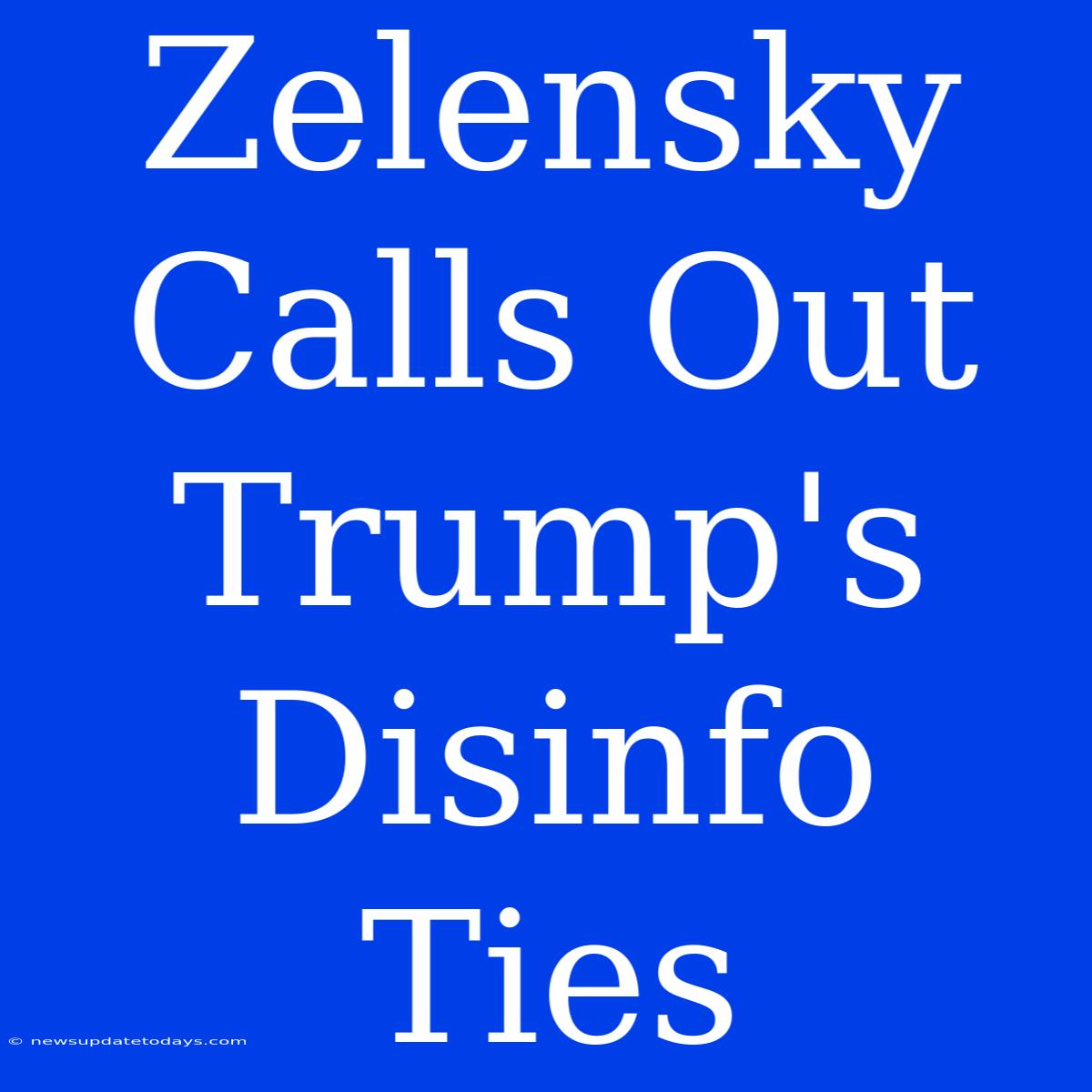Zelensky Calls Out Trump's Disinformation Ties: A Dangerous Alliance?
President Volodymyr Zelenskyy's recent comments directly implicating Donald Trump in the spread of Russian disinformation have ignited a firestorm of debate. The accusations, though serious, require careful examination to understand their full implications for both Ukraine and the global political landscape. This article delves into Zelenskyy's claims, exploring the potential connections between Trump's rhetoric and the Kremlin's propaganda machine, and analyzing the broader consequences of such an alliance.
The Allegations: What Did Zelenskyy Say?
Zelenskyy's statements, while not explicitly naming Trump, strongly suggested a link between the former US President's public pronouncements and the dissemination of pro-Russian narratives. He highlighted instances where Trump's rhetoric mirrored or echoed Kremlin talking points, effectively amplifying disinformation campaigns aimed at undermining Ukraine's defense and its allies' support. This isn't simply a matter of differing opinions; Zelenskyy framed it as a deliberate collaboration, potentially aiding Russia's war effort.
Examining the Evidence: Trump's Rhetoric and Russian Propaganda
Several key points of comparison between Trump's statements and Russian propaganda have been raised:
- Downplaying Russian aggression: Trump's consistent reluctance to unequivocally condemn Russia's invasion, coupled with his frequent praise of Vladimir Putin, aligns with a central theme of Russian disinformation – minimizing the severity of the conflict and portraying Ukraine as the aggressor.
- Casting doubt on Ukrainian integrity: Trump's questioning of Ukraine's legitimacy and its leadership's motives mirrors Russian propaganda efforts to depict Ukraine as corrupt and unstable.
- Promoting narratives beneficial to Russia: By publicly suggesting Ukraine's willingness to negotiate away territory or questioning the effectiveness of Western aid, Trump inadvertently reinforced narratives actively promoted by the Kremlin.
It's crucial to note that correlation doesn't equal causation. However, the sheer frequency of overlaps between Trump's rhetoric and Kremlin talking points raises serious concerns about the potential for unintentional – or intentional – amplification of Russian disinformation.
The Geopolitical Ramifications: A Weakened West?
The implications of a perceived or real alliance between a former US President and Russian disinformation efforts are far-reaching. It weakens the unified Western front against Russia, potentially emboldening Putin and undermining international efforts to hold Russia accountable for its actions. Furthermore, it sows seeds of discord within the Western alliance, creating doubt and uncertainty regarding the commitment of key players to the collective defense of Ukraine and democratic values.
Conclusion: Unanswered Questions and Future Implications
Zelenskyy's accusations demand a thorough investigation. While the exact nature of the relationship between Trump and the Kremlin's disinformation apparatus remains unclear, the potential for collusion warrants serious scrutiny. The long-term consequences of even perceived collaboration between a powerful political figure and a hostile state's propaganda machine are profoundly destabilizing. The international community needs to carefully examine these allegations and address the underlying challenges posed by disinformation campaigns in the era of globalized information warfare. The future stability of Europe, and the effectiveness of Western democracies in countering authoritarianism, may hinge on the answers.

